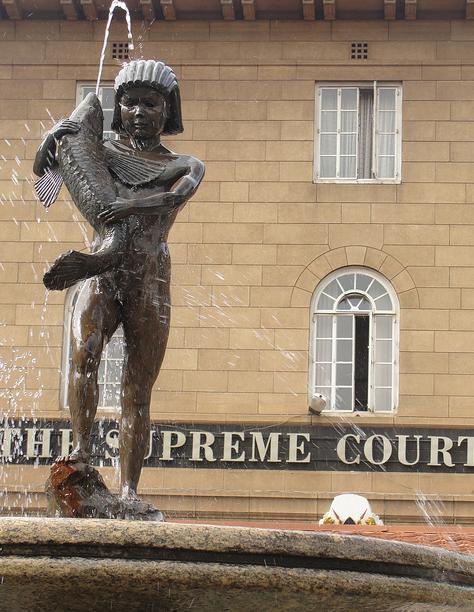
Today, the Law Society of Kenya reports that the Chief Justice (CJ) Dr. Willy Mutunga has made Practice and Procedure Rules for enforcement of the Bill of Rights under Article 22(3) as read with Article 23 and Article 165 (3) (b) of the Constitution of Kenya. A copy of these Practice and Procedure Rules (hereafter “Mutunga Rules”) is available here.
Jurisprudentially, the Mutunga Rules mark the beginning of a new era in the determination of constitutional questions by the courts of Kenya. From as far back as the Gibson Kamau Kuria vs Attorney General case of 1988, the courts relied on the absence of such rules made by the CJ to argue that they lacked jurisdiction to enforce rights and fundamental freedoms that were alleged to have been denied, violated, infringed or were threatened.
The right to property is one of the fundamental rights guaranteed under the Constitution of the Republic of Kenya. The said right was protected by Section 75 of the former Constitution. As discussed elsewhere, the 2010 Constitution in Article 40 read with Article 260 fundamentally transformed the right to property by extending its definition of property to cover both real property and intangible property rights such as IP rights. Article 40(6) also imposes a positive obligation on the State to support, promote and protect the IP rights of the people of Kenya.
Therefore the Mutunga Rules now in force are intended to provide a framework which facilitates access to justice for all persons seeking to enforce their IP rights against the State or any other person, whether natural or corporate. As compared with the previous rules by former CJ Evans Gicheru (aka Gicheru Rules), the Mutunga Rules have a number of welcomed additions that will assist IP litigants.
From Rule 1 on the scope and objectives of the Mutunga Rules, it is clear that the overriding objective of these rules is to facilitate access to justice for all persons. In this regard, sub rule 4 provides that the Court in exercise of its jurisdiction under the Mutunga Rules shall facilitate the just, expeditious, proportionate and affordable resolution of all cases. Furthermore, sub rule 7 states that the Court shall pursue access to justice for all persons including the poor; illiterate; uninformed; unrepresented; and persons with disabilities. To illustrate the significance of this rule where IP issues are concerned, take for instance the case where the petitioner is an indigenous community that may not necessary have sufficient financial means and may not be well-versed with the intricacies of their IP suit.
The introductions of the “Friend of the Court” (amicus curiae) and the Interested Party are also noteworthy. In the case of the amicus curiae provision, Courts may now allow any person with expertise on a particular issue which is before the Court to appear as a friend of the Court. This is significant for IP issues, where the Court may require a copyright or industrial property expert to shed light on such issues. In the case of the interested party provision, any person is now allowed to seek leave of the Court to make an oral or written application to be joined as an interested party. In IP issues, this provision is welcomed as it allows for courts to deliberate on issues holistically and create broad-based jurisprudence on IP issues. Other important provisions in the Rules are the Court’s discretion to extend time limits imposed by the Rules or by any decision of the Court, the Court’s discretion to refer a matter for hearing and determination by alternative dispute resolution mechanism and finally, the Court Registrar’s power to waive court
fees.
One notable omission from the Mutunga Rules is a requirement for reference of the matter to the Chief Justice for directions as to appointment of a judge or judges to hear determine certain issues based on their expertise or experience. In the present case, it may be argued that not all judges are at the same level of familiarity and understanding of property issues generally and IP laws, in particular.
Fortunately, this blogger notes that the Rule 37 contains an in-built mechanism for CJ Mutunga to review the Rules and made necessary amendments from time to time.